Dacia Jogger vs VW ID.7 – Differences & prices compared
Compare performance, boot space, consumption and price in one view.
Find out now: which car is the better choice for you – Dacia Jogger or VW ID.7?
The Dacia Jogger (MPV) comes with a Full Hybrid, LPG or Petrol engine and Automatic or Manuel transmission. In comparison, the VW ID.7 (Hatchback) features a Electric engine with Automatic transmission.
When it comes to boot capacity, the Dacia Jogger offers 607 L, while the VW ID.7 provides 532 L – depending on how much space you need. If you’re looking for more power, decide whether the 140 HP of the Dacia Jogger or the 340 HP of the VW ID.7 suits your needs better.
In terms of consumption, the values are 4.70 L per 100 km for the Dacia Jogger, and 13.60 kWh for the VW ID.7.
Price-wise, the Dacia Jogger starts at 15400 £, while the VW ID.7 is available from 46300 £. Compare all the details and find out which model fits your lifestyle best!
Dacia Jogger
The Dacia Jogger offers a spacious and versatile interior, making it an excellent choice for families seeking practicality and comfort. Its design combines the robustness of an SUV with the functionality of an estate, providing a reliable option for various driving needs. With a focus on affordability, the Jogger ensures that essential features are accessible without compromising on quality.
details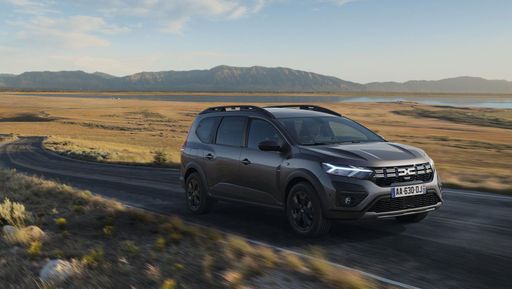 @ dacia-presse.de
@ dacia-presse.de
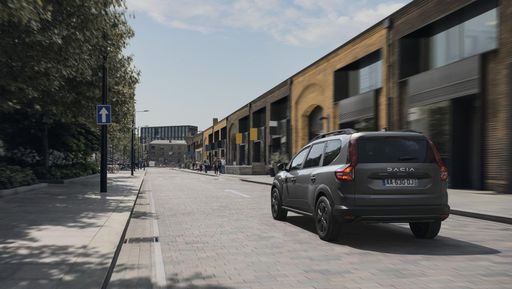 @ dacia-presse.de
@ dacia-presse.de
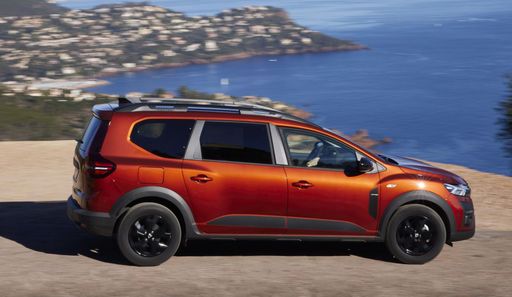 @ dacia-presse.de
@ dacia-presse.de
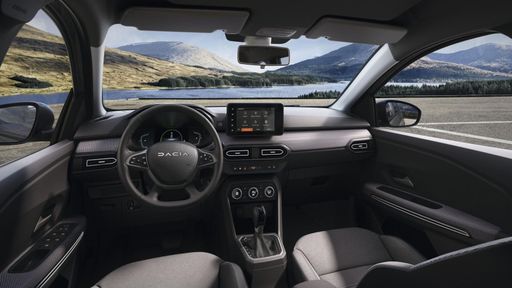 @ dacia-presse.de
@ dacia-presse.de
VW ID.7
The VW ID.7 represents a significant step forward in Volkswagen's electric vehicle lineup, offering an elegant design combined with advanced technology features. This electric saloon showcases a sleek aerodynamic profile, prioritising both performance and efficiency. Inside, drivers will appreciate the spacious and modern cabin, equipped with intuitive controls and connectivity features for a seamless driving experience.
details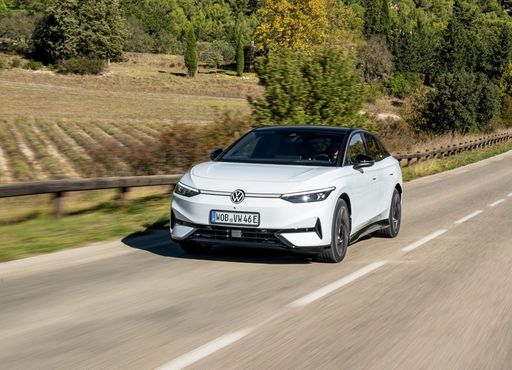 @ Volkswagen.de
@ Volkswagen.de
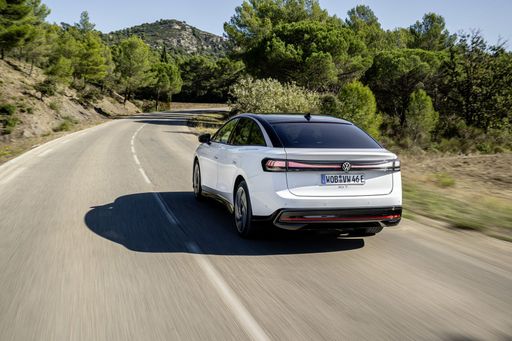 @ Volkswagen.de
@ Volkswagen.de
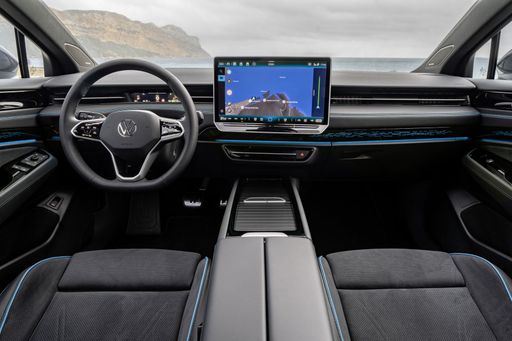 @ Volkswagen.de
@ Volkswagen.de
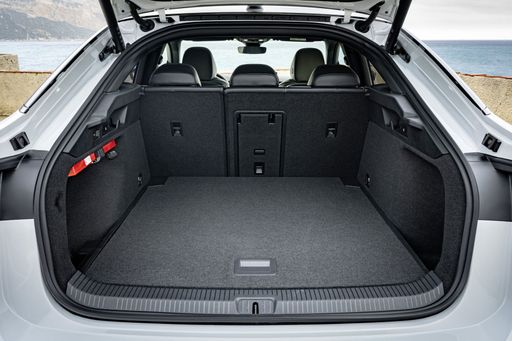 @ Volkswagen.de
@ Volkswagen.de

|

|
|
|
|
Costs and Consumption |
|
|---|---|
|
Price
15400 - 23400 £
|
Price
46300 - 54100 £
|
|
Consumption L/100km
4.7 - 7.7 L
|
Consumption L/100km
-
|
|
Consumption kWh/100km
-
|
Consumption kWh/100km
13.6 - 16.2 kWh
|
|
Electric Range
-
|
Electric Range
595 - 709 km
|
|
Battery Capacity
0.60 kWh
|
Battery Capacity
77 - 86 kWh
|
|
co2
105 - 137 g/km
|
co2
0 g/km
|
|
Fuel tank capacity
40 - 50 L
|
Fuel tank capacity
-
|
Dimensions and Body |
|
|---|---|
|
Body Type
MPV
|
Body Type
Hatchback
|
|
Seats
5 - 7
|
Seats
5
|
|
Doors
5
|
Doors
5
|
|
Curb weight
1251 - 1460 kg
|
Curb weight
2184 - 2328 kg
|
|
Trunk capacity
160 - 607 L
|
Trunk capacity
532 L
|
|
Length
4547 mm
|
Length
4961 mm
|
|
Width
1784 mm
|
Width
1862 mm
|
|
Height
1674 mm
|
Height
1535 - 1536 mm
|
|
Payload
393 - 582 kg
|
Payload
456 - 462 kg
|
Engine and Performance |
|
|---|---|
|
Engine Type
Full Hybrid, LPG, Petrol
|
Engine Type
Electric
|
|
Transmission
Automatic, Manuel
|
Transmission
Automatic
|
|
Transmission Detail
Automatic Gearbox, Manual Gearbox
|
Transmission Detail
-
|
|
Drive Type
Front-Wheel Drive
|
Drive Type
Rear-Wheel Drive, All-Wheel Drive
|
|
Power HP
91 - 140 HP
|
Power HP
286 - 340 HP
|
|
Acceleration 0-100km/h
9.8 - 13.2 s
|
Acceleration 0-100km/h
5.4 - 6.6 s
|
|
Max Speed
167 - 174 km/h
|
Max Speed
180 km/h
|
|
Torque
160 - 200 Nm
|
Torque
545 - 679 Nm
|
|
Number of Cylinders
3 - 4
|
Number of Cylinders
-
|
|
Power kW
67 - 103 kW
|
Power kW
210 - 250 kW
|
|
Engine capacity
999 - 1598 cm3
|
Engine capacity
-
|
General |
|
|---|---|
|
Model Year
2024 - 2025
|
Model Year
2023 - 2024
|
|
CO2 Efficiency Class
C, D
|
CO2 Efficiency Class
A
|
|
Brand
Dacia
|
Brand
VW
|
Dacia Jogger
Introducing the Dacia Jogger: A New Era of Affordable Versatility
The Dacia Jogger has revolutionised the automotive industry by combining practicality and cost-efficiency with innovative features. This multi-purpose vehicle is perfect for families and adventurers alike, offering remarkable versatility alongside a competitive pricing strategy.
Powertrain Options: A Broad Spectrum of Choice
Dacia provides a range of powertrain options to cater to diverse preferences. The Jogger comes equipped with a selection of full-hybrid and turbocharged petrol engines. The full-hybrid version delivers a robust output of up to 140 PS, coupled with an impressive fuel efficiency of 4.7 to 4.8 L/100km. For those preferring a conventional setup, the ECO-G petrol engines offer up to 110 PS, promising a reliable and economical drive with a fuel consumption ranging from 5.7 to 7.7 L/100km.
Innovation in Every Journey
One of the notable innovations in the Jogger is its intelligent use of space. The model boasts a generous seating capacity, comfortably accommodating 5 to 7 passengers, depending on the configuration. With features like adjustable seats and a large boot space extending up to 607 litres, the Jogger is designed to handle anything from family vacations to transporting bulky items.
Design and Comfort: More than Meets the Eye
The Dacia Jogger showcases a modern design, with a robust and aerodynamic silhouette. Measuring 4547 mm in length, it strikes a balance between spaciousness and manoeuvrability. The comfort of the Jogger is enhanced by its well-crafted interior, offering various amenities across different trim levels, including Expression and Extreme, available in both five and seven-seater configurations.
Performance and Handling: Tailored for Every Terrain
Equipped with front-wheel drive and a choice between manual and automatic transmissions, the Jogger assures a smooth driving experience. Its engines, offering up to 103 kW (140 PS), ensure adequate power delivery, while the model accelerates from 0-100 km/h in just under 10 seconds. With a top speed of up to 174 km/h, the Jogger is well-suited for both urban and highway driving.
Affordability and Economy: A Balanced Proposition
Dacia continues to uphold its reputation for affordability with the Jogger, offering a competitive price range between €17,900 and €26,400. This pricing, combined with low maintenance and operating costs, makes the Jogger a highly attractive option in the MPV market. Its monthly costs are estimated between €701 and €821, ensuring outstanding value for budget-conscious consumers.
Conclusion: The Versatile Choice
The Dacia Jogger is a vehicle that offers practicality, efficiency, and innovation without breaking the bank. With its diverse range of configurations and features, it is aptly capable of meeting a wide array of needs, whether for family tasks or everyday adventures. The Jogger is more than just a means of transportation; it is a testament to Dacia’s commitment to delivering quality and value.
VW ID.7
Introducing the VW ID.7: A Game-Changer in the Electric Car Market
The VW ID.7 represents Volkswagen's commitment to innovation and sustainability in the automotive market. This all-electric vehicle stands out not only for its sleek design but also for its impressive array of technological advancements. In this article, we delve into the technical specifications and innovations that make the ID.7 a remarkable addition to Volkswagen's electric vehicle lineup.
Power and Performance
Under the bonnet, the VW ID.7 is powered by a range of electric motors, offering horsepower between 286 and 340 PS. This provides the perfect blend of power and efficiency, making it an ideal choice for both city driving and long-distance journeys. With a top speed of 180 km/h and a lightning-fast acceleration from 0 to 100 km/h in just 5.4 seconds, the ID.7 doesn’t compromise on performance.
Impressive Range and Efficiency
The VW ID.7 redefines what it means to travel efficiently. Depending on the model, the ID.7 offers an electric range between 595 and 709 km on a single charge, setting new benchmarks for the industry. With energy consumption as low as 13.6 kWh per 100 km, it is one of the most energy-efficient vehicles in its class, making it both environmentally friendly and cost-effective for everyday use. The ID.7 boasts a CO2 efficiency class of A, reflecting its zero-emission status.
Advanced Technology and Safety Features
Volkswagen has equipped the ID.7 with cutting-edge technology designed to enhance the driving experience. The car features advanced driver assistance systems, including adaptive cruise control and lane-keeping assistance. Moreover, its infotainment system is state-of-the-art, offering seamless connectivity and a user-friendly interface. Safety features are also top-notch, ensuring peace of mind for drivers and passengers alike.
Design and Comfort
The ID.7's design is both futuristic and practical. Its streamlined body provides a stylish exterior, while the interior is spacious and comfortable, accommodating up to five passengers effortlessly. With a generous boot capacity of 532 litres, there is plenty of storage for all your needs. The ID.7’s dimensions, measuring 4961 mm in length and 1862 mm in width, make it a substantial vehicle that commands attention on the road.
Efficient Price Point
Despite its high-tech features and impressive performance, the VW ID.7 maintains a competitive price range, starting from €53,995. This makes it accessible to a wide range of customers seeking an eco-friendly vehicle without breaking the bank. Additionally, with monthly costs ranging between €1,197 and €1,372, it's a practical choice for those considering long-term electric vehicle ownership.
Conclusion
In conclusion, the VW ID.7 is a testament to innovation in the electric vehicle sector. Its combination of power, range, and technology sets a new standard for what drivers can expect from an electric car. As Volkswagen continues to pave the way for electric mobility, the ID.7 stands as a beacon of what's possible when cutting-edge technology meets sustainable driving practices.
Which drive types are available for the Dacia Jogger?
Available as .
The prices and data displayed are estimates based on German list prices and may vary by country. This information is not legally binding.
